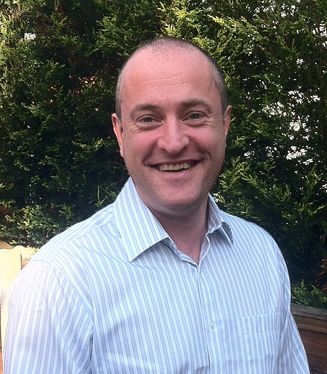 Getting rich quick is just about anyone’s dream come true. The allure of a large jackpot that one could win instantly is almost too much for any regular person to ignore…and for any online gambling company to leave out of their offerings.
Getting rich quick is just about anyone’s dream come true. The allure of a large jackpot that one could win instantly is almost too much for any regular person to ignore…and for any online gambling company to leave out of their offerings.
The trouble for online gambling operators is that in the past, offering a large jackpot required the player liquidity and seeding, two requirements that make it next to impossible for smaller operators to entice players with a life changing jackpot.
Four years ago Nick Lynes and Stan Stallone of Topjack Games came up with a concept that would allow any operator, big or small, to have access to huge instant jackpots. Four months ago, Topjack Games fully launched their “insured jackpot” concept which operators can white label and add to their suite of games, giving their players immediate access to 5-10 million Euro jackpots.
I sat down with Lynes to learn more about the insured jackpot concept, the journey from idea to launch, the reaction of the gambling world to this innovative product and what advice he has for anyone who wants to bring their concepts to life.
Becky Liggero: Thanks for joining me Nick, lets start with how you came up with the innovative concept of an “insured jackpot”?
Nick Lynes: The original concept was to develop a platform, which could deliver mega jackpots on all games that do not require player liquidity or jackpot seeding. However, there was no particular light bulb moment. Topjack Games is the result of developing 100 good ideas from many more that weren’t as good. We are constantly iterating and improving all components and everything is evolving. There are of course elements that we replicate in terms of popular game mechanics but there are subtle differences when adding massive jackpots to games that have previously not had them.
BL: Can you briefly define what insured jackpots means, exactly?
NL: We have developed technology that has been assessed and approved by the Malta Lotteries and Gaming Authority (LGA) and by independent auditors appointed by Lloyds of London to securely process game plays. This means that Lloyd’s of London will insure jackpots of all sizes on all of our games not just slots. Our one-stop-shop for licenced and insured games is a world first in online gaming and will change the way online jackpots will be offered.
As a result of our new approach operators can offer massive jackpots that are not tied to the progressive model. TopJack Games gives operators the ability to allow players to play for jackpots that are larger than those that can be offered by the leading e-gaming software providers. Our jackpots are also higher than most national or state lottery prizes.
BL: That sounds incredible, what has been the response of the online gambling industry to your new product?
NL: The response has been amazing. We signed four white labels in four weeks from launch and we are about to make announcements on major deals with tier one gaming and world media brands. Massive Jackpots offer heightened performance for acquisition, retention, conversion and revenue generation and to some degree the higher the jackpot the better the performance. Until now mega jackpots and the liquidity required to grow them have been controlled by a small number of highly coveted software providers. However, the ability to offer mega jackpots is now being shared with Topjack Games, who do not require player liquidity or jackpot seeds for their games.
BL: This sounds like a great option for operators, especially some of the smaller ones. So what are the main differences between the insured jackpot concept and the progressive jackpot concept from consumer point of view?
NL: From a player’s perspective there is no difference. The players will see mega jackpots and when they win these jackpots they will be paid by the operator. Topjack can offer a fixed prize or we can have an accumulator that grows but both are insured and are not grown from player contributions.
BL: What about from an operator point of view?
NL: There are a number of key differences. Firstly a progressive jackpot needs to be grown from player contributions and the only games that have the player liquidity to generate mega jackpots are slots. Consequently, with the progressive model you can only play for mega jackpots on slots. With insured jackpots you can play for mega jackpots on all games and when the jackpots are won they are reinstated at the same amount or higher. Finally, insured jackpots do not need to be seeded by the operator and the cost of an insured jackpot is the same as the cost of a progressive jackpot contribution.
BL: Tell me about your journey to raise capital for this project?
NL: My business partner Stan Stallone and I spent the best part of 2008 defining the business plan in minute detail. This was in preparation so that when we spoke to our prospective investors, Lloyd’s of London or our regulatory authority we were certain about what we were trying to do and how we are going to achieve it. We began raising capital in September 2008, which was in the middle of the worst part of the credit crunch. This was not good timing for us but as a result of making sure the business models were clean, we managed to raise the capital we needed within 6 months. From there we had a long and drawn out negotiation to finalise the shareholders agreement and in October 2009 we signed the agreement and commenced work on the project in full. In July 2011 we launched our beta product and we made the full product available for white label in March 2012.
BL:Describe the process that you went through in order to get Lloyds on board.
NL: Ultimately, we are all in the trust business but some of us more than others, as such Lloyd’s of London is the number one choice. The Lloyd’s name carries with it the level of respectability needed to comfort our prospective investors, regulatory authorities, operators and ultimately the players themselves. It took two years to negotiate the contract and it certainly was not easy. Lloyd’s are a 300-year-old insurance business and we had to develop ways to work with them. However, as it turned out it was a pleasure working with our Lloyd’s of London brokers who understood what we wanted to do and were willing to help us achieve it. Lloyd’s have given us the flexibility we needed evolve the product into what you see today on our demo brand winawage.com.
BL: Two years…that shows dedication and patients. Other than these negotiations with Lloyds, what were the biggest challenges with releasing this totally new concept to market?
NL: Education is the first thing that comes to mind. Imagine the looks I get when I explain how we provide multi-million dollar jackpots that do not require player liquidity, which can also be played off all our games. As you suspect there are a lot of raised eyebrows. However, when I explain the model the reception is fantastic. We are getting there and we are experiencing a lot of good press and publicity, which really helps. I estimate there will be source of insured gaming of some kind or other in 50% of all mainstream operators within 4 years and it will be those who move quickly on this, who will benefit the most.
BL: And finally, what advice do you have for anyone looking to launch a product in the online gambling industry?
NL: Imagine all the problems you might encounter, then assume you will encounter them. Then try to imagine all the problems you can’t imagine and then assume that you will encounter them too. Accept that you can’t come close to imagining all the problems you will face but also accept that when you do find them you will have to solve them too.
Assume that in all circumstances however long you think something might take or might cost, you need to multiply both by three.
Most importantly success is 2% concerned with the founder’s ideas and 98% concerned with finding ways to successfully make it happen. One of the biggest discrepancies in a start-up is difference between what the founders anticipate will be required and what is actually required to make things happen. Success depends in some way on how quickly that gap can be bridged. This is why an investor and a start-up founder rarely agree when trying to divide the business’ equity.






